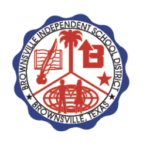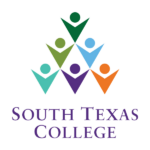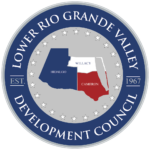Improving
Education to
Support the
Community
Helping RGV students achieve degrees and credentials that lead to meaningful careers and improve quality of life in the Rio Grande Valley.
As the Rio Grande Valley transitions from a largely agricultural economy to a 21st century economy, RGV FOCUS works to align community resources to strengthen educational pathways by improving college readiness, access, and success.
Local Leadership Team
Provide overall vision and guidance
Action Networks
Lead strategy development and implementation
Community Members
Provide stakeholders with a community voice
The RGV FOCUS leadership team works side by side with the RGV FOCUS backbone staff, IHEs, school systems, community based organizations, workforce and industry partners.






































Five key areas have been identified to help achieve the goal of providing every RGV student with opportunities to achieve a degree or credential that leads to a meaningful career.
Increase work-based learning opportunities in the areas of healthcare, information technology, advanced manufacturing, skilled trades (HVAC, plumbing, welding, etc.).
Dedicated to increasing the number of Early College High Schools, P-TECH Campuses, T-STEM Campuses, and associate degree completion rates, and Collaborating with Educate Texas’ College and Career Readiness School Models Network team.
Works to facilitate reverse transfer pathways, increase micro-credential completion rates and expand wraparound supports for students and families, while collaborating with the Educate Texas Higher Education team.
Committed to increasing FAFSA/TAFSA completion rate, introducing and expanding innovative programs to decrease summer melt and increase college application rate, and collaborating with the Texas College Access Network (TxCAN) team.
Expands the Teacher Incentive Allotment program and collaborates with the Educate Texas Teaching & Leading team.

Content, links, advice, and resources to help improve RGV communities through education.

RGV FOCUS joined the StriveTogether Network in 2014, and has since achieved recognition for operating in the Sustaining Gateway of the network.

In 2018, the Rio Grande Valley joined 22 other communities designated as Talent Hubs by Lumina Foundation.
RGV FOCUS is a collective impact initiative of Educate Texas, an educational arm of Dallas-based Communities Foundation of Texas (CFT).
Hidalgo ECHS
STC DEMSA (Dual Enrollment Medical Science Academy)
Progreso ECHS
STC Summit on College Readiness
Mcallen, psja, mercedes, valley view echs
STC DECSA (Dual Enrollment Computer Science Academy), MSI Funders Learning Tour.
Scale ECHS in Throughout RGV
Explore Collective Impact
Planning Year for collective impact
RGV FOCUS is launched. in collaboration with Educate Texas and Communities Foundation of Texas.
Collective Impact in Action
PSJA College for All Demonstration Site.
Ford Corridor
Lumina Community Partnerships for Attainment.
UTRGV Created
Talent Hub designation
New RGV FOCUS Strategic Plan:
Launched as part of the Educate Texas 2025 Strategic Plan.
Goal:
By this year, RGV Focus seeks to have 60 percent of 25- to 34-year-olds in the region earn a certificate or degree.